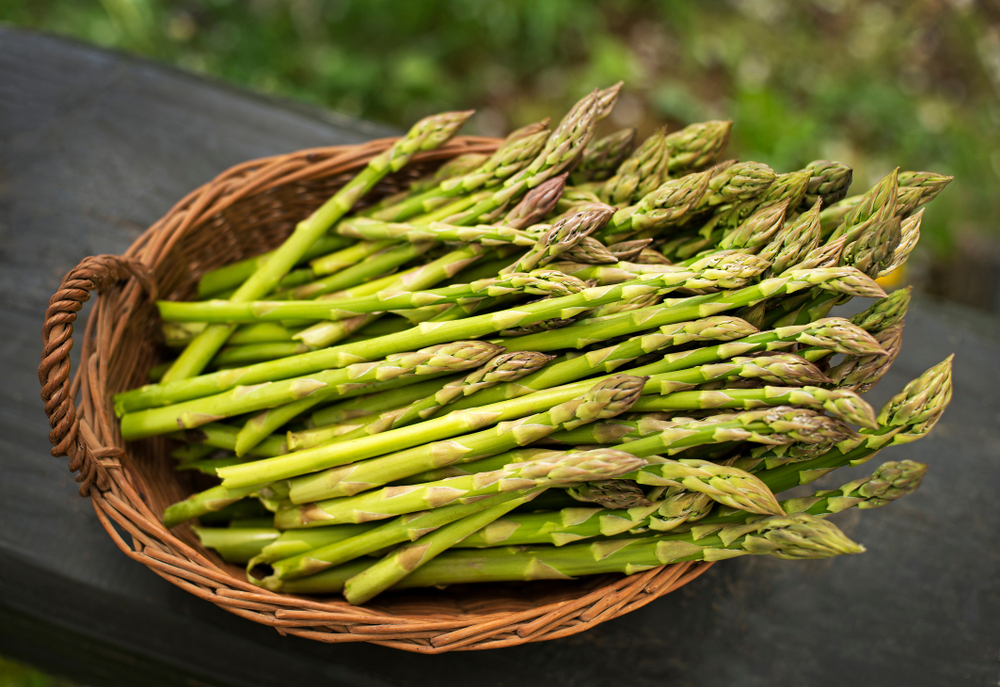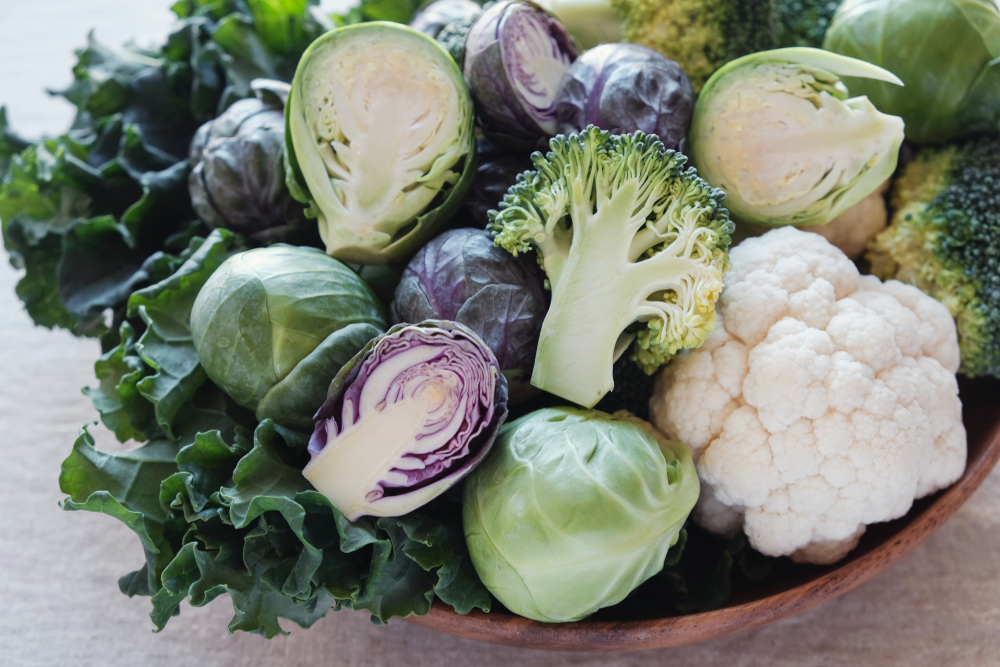Table of Contents (click to expand)
When asparagus is metabolized, it releases a particular metabolite, a volatile compound that is released as a vaporous aroma when you urinate. However, some people are completely unable to detect this smell!
As a child, you probably didn’t like to eat asparagus, but as an adult, hopefully you’ve realized what a delicious and versatile vegetable it can be. If you’re a regular consumer of asparagus, you’ve probably also noticed the effect it can have on the aroma of your bathroom. A phenomenon that has mystified people since asparagus first entered our diet, this vegetable invariably makes our urine smell… strange! Some people think it smells like rotten eggs, while other people find it earthy and fragrant. However, some people can’t detect this pungent scent at all!

If this aromatic assault on your nostrils has ever mystified you in the past, by the end of this article, we’ll get to the bottom of this foul-smelling mystery.
What Causes The Strange Smell?
For those who have experienced this “bouquet” of weirdness after a heart helping of asparagus, don’t get too worried (or excited)… this phenomenon affects everyone who eats it! When we consume food, it enters our body as complex macromolecules, which must be broken down through digestion to be more usable and manageable by the body.
The process of digestion begins the moment food enters our mouth, and ends when we urinate or excrete. Between those two points, a long string of metabolic processes will occur.
During the process of breaking down food, complex molecules are broken down to simpler ones, and byproducts are created. In the case of asparagus, this vegetable contains a unique compound called asparagusic acid, something found exclusively in this bundle-tipped vegetable. When our bodies break down this substance, it creates various volatile sulfur-containing compounds. For a compound to be considered “volatile”, it must have a boiling point that is low enough for it to exist as a gas at room temperature.

When asparagusic acid is broken down, it forms dimethyl disulfide, dimethyl sulfide, dimethyl sulfoxide and dimethyl sulfone. While those compounds may not be the easiest things to say five times fast, they’re all volatile and potent compounds, as are most aromatic compounds that contain sulfur (e.g., rotten eggs!). Within 15-20 minutes of eating asparagus, these metabolites (substances generated as a result of metabolic processes) will be produced. When you next go to the bathroom, as you urinate, these volatile compounds will be released and the pungent aroma will float up to your nose!
Also Read: Why Do Garlic And Onions Cause Bad Breath?
Why Doesn’t Everyone Smell It?
This phenomenon might shock you—particularly the first time you ever eat this vegetable—but if you run into the other room and drag your friends in to witness the olfactory occurrence, some people may just look at you like you’re crazy. In fact, researchers believe that as many as 75% of people are unable to detect the unique fragrance of these compounds once they’re released by the body.
This may be hard to believe, but it’s important to remember that our senses often operate on a spectrum, and no two people observe the world in quite the same way. Our perception of color varies, as does our sensitivity to touch and the strength of our hearing at certain frequencies. It should therefore come as no surprise that our olfactory sense also has some variability.
It is known that there are more than 400 genes linked to our sense of smell, and with the seemingly endless variability of genes, each person’s distinct olfactory perception of the world is a bit easier to understand. Researchers in a large-scale study on this precise topic found that variations in a particular gene on Chromosome 1 is the most likely culprit for the inability to smell asparagus metabolites. This apparent dysfunction in roughly half the population’s ability to smell is called specific anosmia.

It is believed that specific anosmia has developed (for a number of different smells) because humans evolved to depend primarily on their visual sense for survival. Unlike some other animals, whose olfactory sense is hundreds or even thousands of times more sensitive than ours, we have incredibly strong vision (comparatively).
Over thousands of generations, some genetic variation entered the gene pool related to our olfactory sense, but had little to no impact on survival, so it remains a common trait. Frankly, given the noxious fumes of asparagus pee, most people should be thankful they have specific anosmia for this particular scent!
Other Examples Of Anosmia
However, if you are feeling left out of the stinky circle, never fear… there are a number of other common foods that can make your urine smell anything but normal. When your body is dehydrated, your urine tends to have a higher concentration of waste products and aromatic compounds, so when you drink excessive amounts of alcohol or coffee, your urine may take on a rather potent smell.
Similarly, if you eat foods that are high in vitamin B-6, such as bananas, chicken or salmon, you will also notice a funky odor when you urinate. Beetroot is another famous example of this, although not only does this root vegetable affect the smell of your urine, but also the color! Don’t be afraid when your urine comes out a distinct shade of red after ingesting this flavorful vegetable.
Cruciferous vegetables, such as spinach, Brussels sprouts or Swiss chard, also contain various volatile compounds when metabolized by the body, as do various popular spices, such as coriander and cumin, which is why your urine may smell unusual following a healthy dose of curry or Mexican food.

One of the strangest and most noticeable smells comes from puffed wheat, a popular and inexpensive cereal variety around the world. Following a bowl of this grain-based food, you will notice the unmistakeable scent of malt in the air after you relieve yourself!
Also Read: Why Does The Smell Of Some Food Linger On The Skin?
A Final Word
If you are one of those people who can smell the sulfuric compounds in a post-asparagus pee, there is nothing to worry about—with your nose or your bladder. The smell dissipates quickly, and the health benefits you can gain from this nutrient-dense vegetable is well worth the somewhat strange bathroom experience.
How well do you understand the article above!

References (click to expand)
- Pelchat, M. L., Bykowski, C., Duke, F. F., & Reed, D. R. (2010, September 27). Excretion and Perception of a Characteristic Odor in Urine after Asparagus Ingestion: a Psychophysical and Genetic Study. Chemical Senses. Oxford University Press (OUP).
- Mitchell, S. C. (2013). Asparagus, Urinary Odor, and 1,2-Dithiolane-4-Carboxylic Acid. Perspectives in Biology and Medicine. Project Muse.
- Asparapee or aspara-EP? - ProQuest - search.proquest.com
